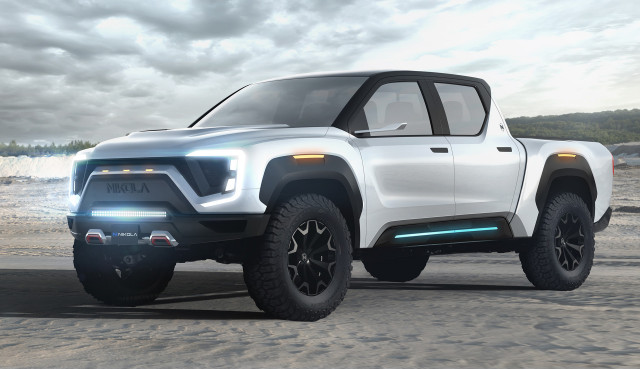Nikola, a developer of hydrogen fuel-cell and battery-electric trucks that was once among the most hyped automotive startups, filed Chapter 11 bankruptcy protection in Delaware on Wednesday.
The startup automaker filed a motion seeking an authorization to pursue the auction and sale of its assets. Currently, the company filed motions to ensure it will be able to continue limited operations to ensure the sale process and non-dealer service and support of trucks in the field.
Entering Chapter 11, Nikola said it had approximately $47 million in cash on hand to fund current operations.
In 2020, when it went public via a then-fashionable reverse merger with a special purpose acquisition company (SPAC), Nikola was worth around $30 billion, according to the report. But MSN reported recently that Nikola’s stock price has tanked, bringing the company’s value down to $74 million.
In its most recent SEC filing, in December, Nikola indicated that it was running low on cash and would only have enough money to continue operating through the first quarter of this year. The company has sought additional funding in recent months, and conducted two rounds of layoffs in October and December of last year. Nikola is yet to announced its Q4 2024 financial results, but in the December filing, it reported a net loss of $481.2 million in the first nine months of that year.
 Nikola Tre electric semi trucks delivering Nissan vehicles in the Los Angeles area
Nikola Tre electric semi trucks delivering Nissan vehicles in the Los Angeles area
Earlier in Feburary, Nikola announced that it was selling its battery assets to Mullen Automotive for an undisclosed amount. That comes roughly a month after Nikola’s announced that its battery-electric trucks had covered 1 million miles in service with customers. The assets were likely inherited from battery maker Romeo Power, which Nikola acquired in September 2023 for around $3.5 million.
Nikola started out not with hydrogen but with a natural-gas turbine, generating electricity to power its semi, with a huge 320-kwh battery pack. But by late 2016, it had shifted to hydrogen fuel cells while continuing to emphasize semi trucks.
Plans also included a fuel-cell pickup, called the Badger, which it turned out never existed to the level that CEO Trevor Milton had suggested—and would have relied on GM to a degree it never actually agreed. In 2020, around the time that the Badger was hyped, Nikola was valued by Wall Street higher than GM. Nikola even teased an ATV around this time.
 Nikola Badger
Nikola Badger
Nikola continued to call itself a BEV and fuel-cell leader, before it actually delivered any trucks, as its stock continued to soar. It all came tumbling down in July 2021, when Milton was charged with securities fraud. That was after Milton left Nikola in response to a report by activist short-seller Hindenburg Research alleging that Milton had misled investors in a range of ways, including that prototypes were moving with Nikola’s own propulsion systems.
Nikola has gone on to deliver products at a more modest scale and ambition, as part of an attempt to rebuild and instead focus on medium-duty trucks after Milton. Although in the interim it’s fallen behind in addressing a battery recall that took many of its first-generation trucks out of service.
Related Articles
- Toyota reveals new fuel-cell stack, isn’t giving up on hydrogen cars
- This new Toyota includes $15,000 of free fuel, costs as little as $17,000
- Hyundai Intium concept previews Nexo fuel-cell SUV successor
- BMW sees volume in hydrogen cars, forms fuel cell alliance with Toyota
- Scientists: Dump hydrogen-powered Toyota as official car of Olympics
